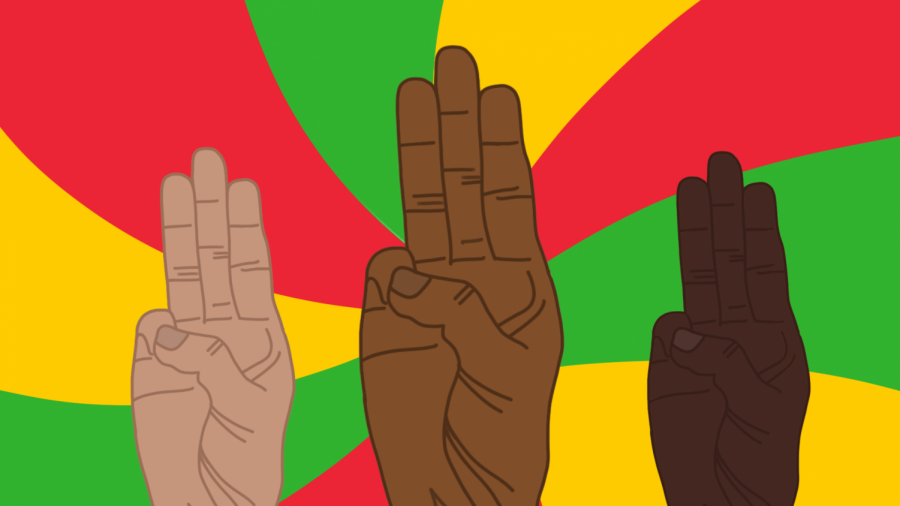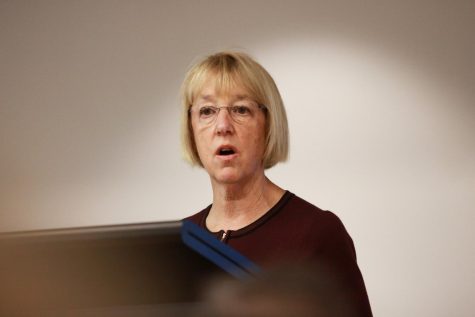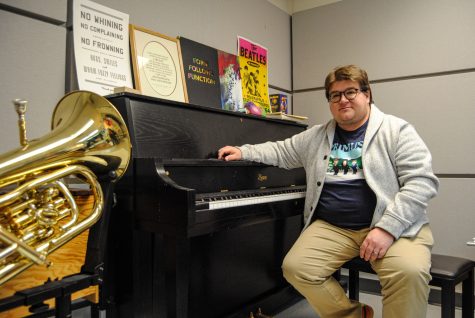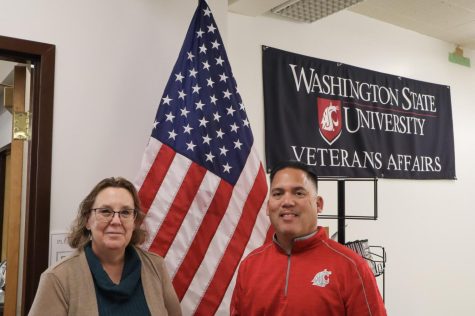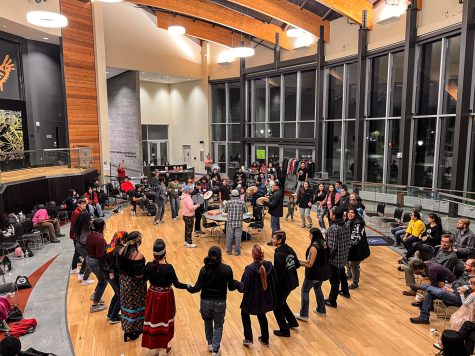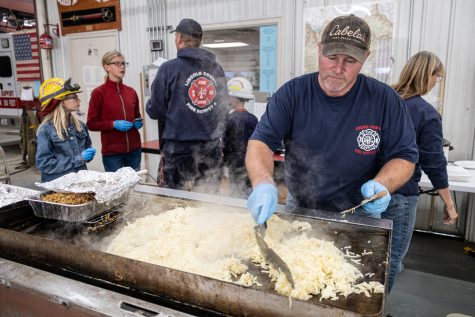WSU Myanmar students share personal stories amid military coup
Situation in Myanmar worsening following Feb. 1 coup; children being targeted
Garmanie Kyaw Swar Tun, senior public relations major, said he hopes the coup ends soon and Myanmar returns to what it was before. He wants people to know how beautiful and rich Burma can be; the country controlled by the military is not the same he once knew.
September 22, 2021
WSU Myanmar students and alumni are urging their family back home to stay hopeful as the Myanmar military coup that started on Feb. 1. continues.
Thaw Zin Naing
Civil engineering major Thaw Zin Naing came to the U.S. in May 2016, in pursuit of a higher education. Now only a year away from graduating, the future of his education is uncertain.
Naing said the state of his country greatly affects his mental health and education. Along with the stress of the coup, Naing also lost his father eight days after the conflict started due to unrelated health reasons.
His remaining family was forced into hiding because of his mother’s role as a student leader in the 1988 Myanmar uprising. While no longer off the grid, they have been forced to lie low and close their business to keep her identity a secret.
Naing is unable to receive money from his family for his tuition as the Myanmar military is currently in control of the nation’s banks. WSU placed a hold on his tuition. But if Naing is unable to pay the fees by this December, he will no longer be a student at WSU.
He plans on making a crowdfunding account in the near future to help pay his tuition but is having doubts about whether he can raise the money.
Naing stressed that while he and his peers struggle, so many other people in Myanmar are losing their homes and loved ones and need the help even more. He said the lack of media coverage led to an absence of knowledge and aid.
“It’s a long fight,” he said. “It’s already been eight months. I just hope they can hang on until the military buries themselves.”
Sandi Win Thu
A few months ago, Sandi Win Thu’s family found themselves in hiding, on the run and at times under direct gunfire, according to a Daily Evergreen article.
Since then, Thu, biological sciences doctoral student, said her family reached some level of safety and she has continuous contact with them.
She said the only thing that kept her going the last few months is talking to family every day to make sure they are safe.
Thu said this is the second year Myanmar has no schooling available. The nation did not have the same access to virtual opportunities as students in the U.S throughout the pandemic. The military continued to keep schools closed in 2021, leaving many without proper education.
Thu is very worried for her younger sister and her education as she continues to miss out on another year of school. She said she wants people back home to keep their heads high and to not lose hope.
“I don’t want them to be afraid to go back to the academic way,” Thu said.
Thu encourages her peers and the WSU community to help by spreading the word in order to gain support and aid for those fighting in Myanmar.
To the people in Myanmar, Thu said she wishes they stay safe, stay healthy and do not lose hope.
Wint Mon Mon Kway
WSU alumni, Wint Mon Mon Kway, said the military’s control over Myanmar’s health care led to many unnecessary deaths resulting from COVID-19 and other diseases.
Medical resources are either extremely limited or expensive leaving many people without options for adequate health care. She said those who have contracted COVID-19 had a difficult time obtaining proper oxygen supply, leading to more deaths.
Kway said her country is no longer safe for the youth following the military’s takeover. Children are being targeted, with many being arrested or shot. Kyaw began applying to universities in the U.S. for her brother hoping it will get him away from the crisis.
She manages her mental health by ignoring the news. Instead, Kway said she gets her information through her parents to avoid any corrupted media. She tries not to focus too much on the state of Myanmar but is concerned about the possibility of war.
For now, Kway said she is focusing on her career first so that she can give back to her country later.
Garmanie Kyaw Swar Tun
Garmanie Kyaw Swar Tun, senior public relations major, said when the military initially cut off communications, he just kept thinking about the “what ifs.” His parents struggled to fund his education but were able to get some help from friends in the U.S.
Tun said half of his friends growing up are brainwashed by the military. While he cut off contact with anyone holding those ideals, his father is unable to do the same.
The coup majorly affected the Myanmar economy and the success of his father’s business. In order to continue making an income, Tun’s father is forced to stay in contact with military personnel.
Tun said that after months of unrest, people feel they can no longer fight against the daily routine of shootings in the streets and bombings. He said the military’s use of weapons desecrated places that once were considered safe.
“Where I used to go out, where I used to play around, where I used to eat,” he said. “We can’t even go out.”
Tun said he hopes the coup ends soon and the country returns to what it was before. He wants people to know how beautiful and rich Myanmar can be; the country controlled by the military is not the same he once knew.
“Never give up on hope. We’ve been under the military for 60 years and this is our chance to win,” he said. “This is our endgame. Either they win or we win.”

